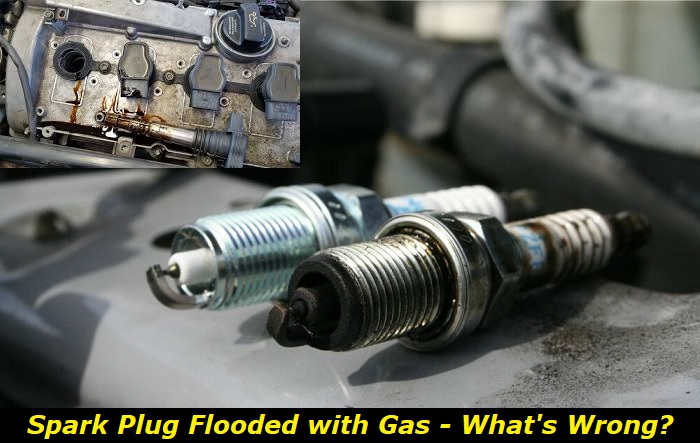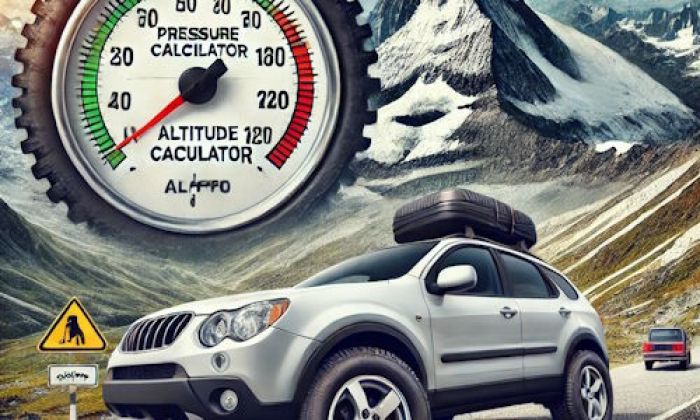A flooded spark plug is a spark plug that has a lot of fuel on it and doesn't produce the spark anymore. The flooded spark plug prevents your engine from running. Actually, a flooded engine can lead to other issues like heavy misfiring, harsh work, low efficiency, and also very bad gas mileage.
Hard engine starting highlights
- Level of urgency:Medium
- Can you drive?Yes, if it starts
- DIY inspection:Possible but complicated
- DIY repair:Mostly,impossible
- Price for repair:$200 - $750
- Common Reasons:Spark issues, carb problems, compression, engine problems
- Ways to fix:Inspect spark plugs, check compression, verify fuel supply is good

The symptoms of flooded spark plugs in your engine
When you drive your car, you want your engine to run smoothly. Harsh work or problems with acceleration will certainly bother you. Some drivers will even start panicking when something goes wrong with their engines. No worries please, in this article, we will try to figure out everything you need to know about flooded spark plugs.
So, first of all, you need to identify the actual problem. If it's really the flooded engine and your spark plugs are wet, it's important to immediately find the reason for this. Unfortunately, locating the actual problem is not that easy.
Here are the possible symptoms:
- your engine doesn't start as quickly as usual - you need to crank it for some time before it starts;
- the engine work is really harsh - it shakes and vibrates, and you can hear different unpleasant sounds coming from the engine;
- the acceleration is really bad and uneven - it can go OK for some time, and then the engine may sputter suddenly;
- the overall power of the engine is significantly worse than it should be;
- the check engine light may be on due to misfires in certain cylinders, the P0300 code is the most possible culprit;
- you can find out that the catalytic converter is red-hot and the car is backfiring when you press the gas pedal.
These symptoms may develop one by one starting with some minor ones and moving on to the severe problems that basically block your vehicle and don't allow you to drive it. On one bad day, you will just not be able to start the car because of the wet spark plugs.
Also, the combination of symptoms may be different in various vehicles. The worse the problem, the better you feel all the symptoms when you are driving. It's important to remember all the symptoms that attack your car because this will help you locate the problem eventually.
What are the common reasons for wet spark plugs?
This issue was extremely common in vehicles with carbureted engines. At those times, the ignition was controlled by a distributor that wasn't actually a very precise mechanism. So, when the ignition timing was off, the engine stopped working and the fuel was still injected into the combustion chamber. This means that the spark plugs could become wet and just stop producing spark at all.
In modern vehicles, the ignition timing is controlled by the ECU, so these problems are not that common. Here are the reasons that can cause your spark plugs to be wet:
1. Wrong fuel supply
The central reason for this problem is the fuel-air mixture issue. It can be too lean or too rich and eventually, it can refuse burning. When it doesn't burn, the unburnt fuel is left all over the combustion chamber, including the spark plug firing tip. A couple of such cycles will most likely contaminate the spark plug and won't allow it to produce a spark.
One of the reasons for such a behavior of the engine is the problem with the fuel pressure. When the fuel pump or one of the injectors is faulty, the fuel is not injected into the chamber or into the intake manifold with the needed parameters. This may lead to changes in the way the air-fuel mixture is prepared.
2. Air intake problems
Another part of the process of air-fuel mixture preparation is air supply. If your engine is naturally aspirated, the air comes freely through the air intake and air filter. You need to check whether something blocks the air supply or the filter is dirty. If this is the case, solve the problem immediately.
If the engine is turbocharged, you may need to have a look at the turbocharger. It may not be working efficiently and this affects the process of air-fuel mixture preparation. Of course, this is going to change the way your engine works. The turbo should be inspected by a professional mechanic.
3. Bad spark plug
If your spark plug is fouled or just broken, it may not be creating the proper spark to ignite the mixture inside the combustion chamber. This will lead to fuel contaminating the spark plug even more and just killing it.
Also, the wet buildup on your plug may not necessarily be the fuel. It may be the oil. If the spark plug is contaminated by oil, it will not produce the needed spark and will basically be dead. One cylinder will not work and the injector will gladly pour some fuel to the combustion chamber each time the ECU will tell it to do so. This will lead to even worse problems.
4. Bad ignition coil
The spark plug is controlled and activated by the ignition coil. This is the tool that takes the power from the battery and turns it to high-voltage power that actually created the spark. Unfortunately, ignition coils are not eternal. Sooner or later, they die and cause the spark plug to be washed by fuel.
This also causes misfire issues and will show all the same symptoms as the faulty spark plug. You need to know that this issue is pretty common and you may want to check the coils and plugs the second thing after checking the fuel pressure issues.
5. ECU glitches
The ECU is one of the really important control units in your vehicle. It gives the signals to ignition coils to ignite spark plugs, and it gives the signals to fuel injectors to inject the fuel into the engine. If something is wrong with this timing, the engine will work really harshly or will not work at all.
Also, if the ECU gets wrong readings from engine sensors such as the crankshaft position sensor, mass air-flow sensor, etc., it will not be able to signal the ignition coils and injectors to work properly. So, these sensors are also worth checking.
Can you drive if the spark plugs are wet?
If your engine still starts and allows you to drive, you can drive. But it's not a good idea to ignore the problem. If you drive 100 miles with such a condition in your engine, this may lead to serious engine damage.
Everything depends on the reason and the scale of the problem. If two cylinders out of four just don't work, you will not be able to drive the car. It will have as much power as a scooter, so you will barely be able to make it move from its place. Also, the engine will stall once it meets bad loads.
But if the misfiring problem is not consistent and it only lights up a check engine light without changing the way your engine works, you can drive for quite a long time without any consequences.
And still, I recommend you address this issue because it can lead to several unpleasant things:
- problems with ignition coils because of faulty spark plugs;
- issues with the catalytic converter because of the fuel burning in it;
- knocking engine due to detonation of the fuel that wasn't combusted;
- problems with exhaust and inability to pass the emission test;
- error codes in your ECU and risks of sending the engine to the limp mode;
- harsh work of the engine that can also lead to other problems.
Your engine will be destroyed step by step and you will not notice it because all the changes are really slow and unnoticeable. But on one bad day, you will not be able to start the vehicle and drive it.
How can you fix the problem with flooded spark plugs?
The proper way to fix these issues depends mainly on the initial reason. If the problem is with the coils, for example, you better replace the coils that are malfunctioning. If the issue is because of the fuel pressure or air intake, you should repair these units. The most important issue is that it's hard to locate the actual reason.
So, you will most likely want to find a good specialist who can diagnose your car and fix it. The only important thing to remember is that ignoring the issue and keeping driving the car is not an option - this may kill several important and expensive parts of the engine.
About the authors
The CarAraC research team is composed of seasoned auto mechanics and automotive industry professionals, including individuals with advanced degrees and certifications in their field. Our team members boast prestigious credentials, reflecting their extensive knowledge and skills. These qualifications include: IMI: Institute of the Motor Industry, ASE-Certified Master Automobile Technicians; Coventry University, Graduate of MA in Automotive Journalism; Politecnico di Torino, Italy, MS Automotive Engineering; Ss. Cyril and Methodius University in Skopje, Mechanical University in Skopje; TOC Automotive College; DHA Suffa University, Department of Mechanical Engineering






Add comment